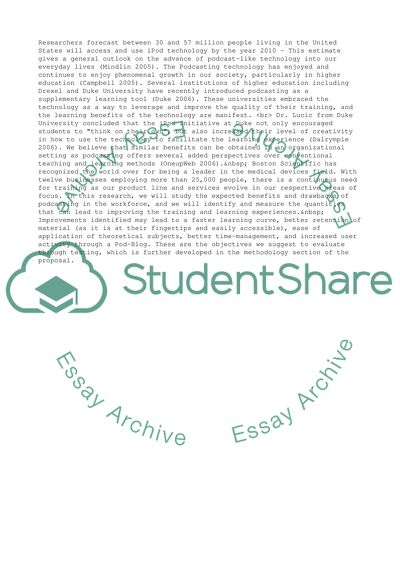Cite this document
(Podcasts for Training in an Organisational Setting Research Proposal, n.d.)
Podcasts for Training in an Organisational Setting Research Proposal. Retrieved from https://studentshare.org/management/1512730-podcasts-for-training-in-an-organisational-setting
Podcasts for Training in an Organisational Setting Research Proposal. Retrieved from https://studentshare.org/management/1512730-podcasts-for-training-in-an-organisational-setting
(Podcasts for Training in an Organisational Setting Research Proposal)
Podcasts for Training in an Organisational Setting Research Proposal. https://studentshare.org/management/1512730-podcasts-for-training-in-an-organisational-setting.
Podcasts for Training in an Organisational Setting Research Proposal. https://studentshare.org/management/1512730-podcasts-for-training-in-an-organisational-setting.
“Podcasts for Training in an Organisational Setting Research Proposal”, n.d. https://studentshare.org/management/1512730-podcasts-for-training-in-an-organisational-setting.


